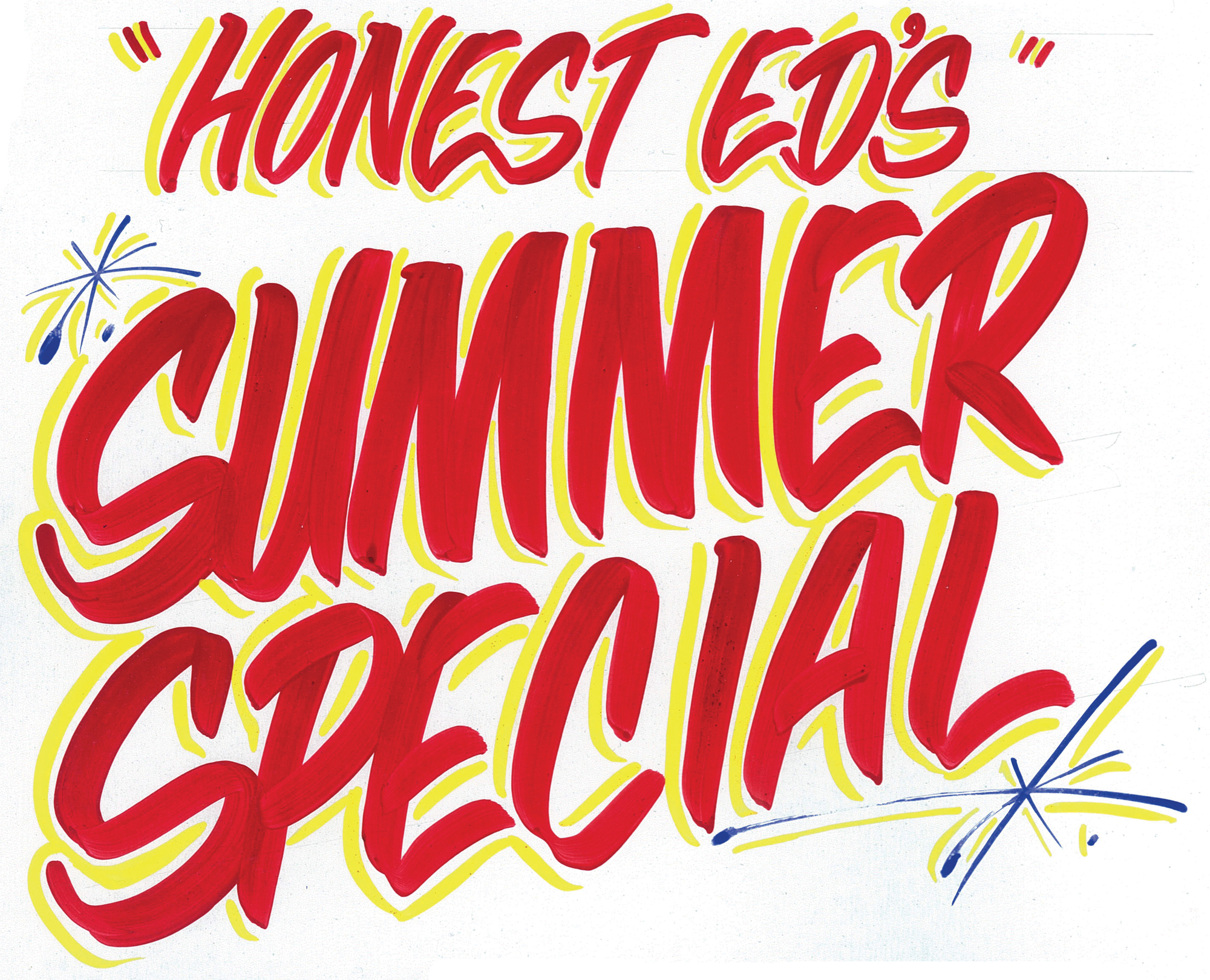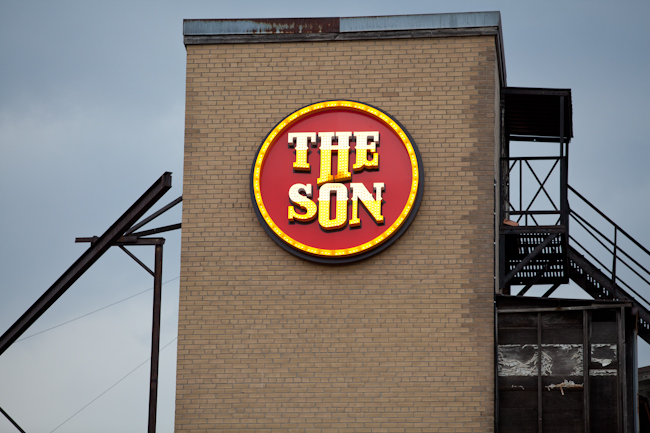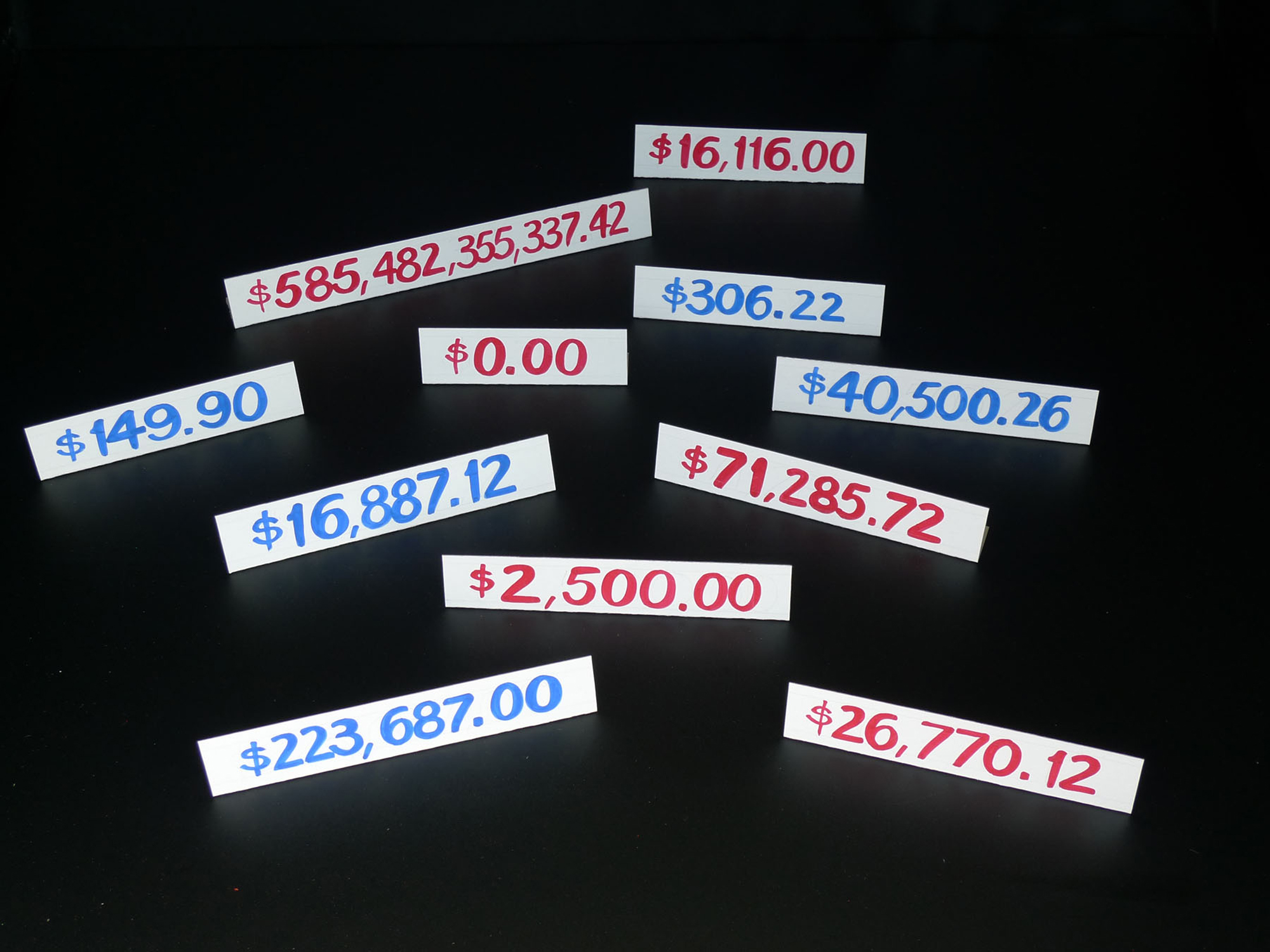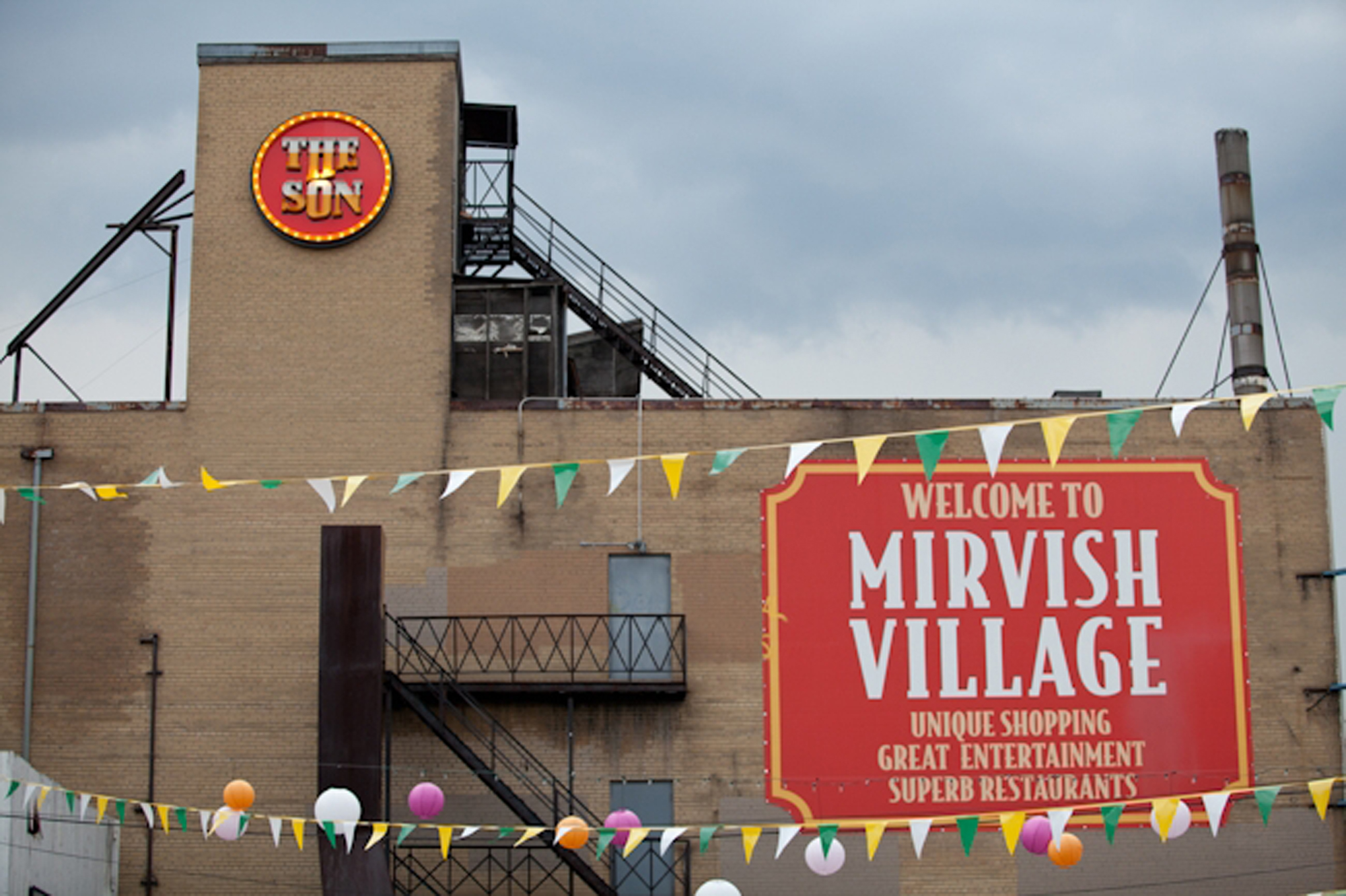SUMMER SPECIAL
Corinne Carlson, Robin Collyer, Barr Gilmore, Jen Hutton, Sarah Lazarovic, Ron Terada
Exhibition
Koffler Gallery at Honest Ed’s, 2012
Photo documentation by Nick Kozak
Summer Special takes its inspiration from the trademark signs and show bills of Honest Ed’s, Toronto’s landmark discount store. Building upon the store’s tradition of craftsmanship, Toronto artists Corinne Carlson, Robin Collyer, Barr Gilmore, Jen Hutton, Sarah Lazarovic and Vancouver-based Ron Terada create new works that explore the visual vocabulary of commercial and urban signage, infiltrating the iconic building and its façade with site-specific installations.
Drawing upon the realm of advertising, Corinne Carlson translates popular culture images and words-as-image through her idiosyncratic, autobiographical filter. For Summer Special, Carlson creates postcards that mimic letterpress cards of days gone by, capturing memorable fragments of private exchanges that will be displayed and sold along with Honest Ed’s merchandise. Over several weeks, Robin Collyer took thousands of photographs inside the store, in the uncanny light and near silence before opening hours. The resulting stop motion film reveals the commercial machine at rest and highlights the hanging, hand-painted signs. Collyer also creates a window intervention of price tags bearing exorbitant figures never before seen at Honest Ed’s, where the highest value is the inexpensiveness of the goods for sale.
Having culled the word 'Honest' from the familiar store signage for his Nuit Blanche intervention in 2008, Barr Gilmore plays once again the détournement game by scrambling the famous letters to spell The Son. While the evocative new sign allows for many interpretations, the artist conceives it as a self-portrait – an abstract representation of an only son, born with the Sun in Cancer. Placed atop the highest elevation at Honest Ed's, The Son becomes a radiant beacon and a sign of hope. In her intervention for Summer Special, Jen Hutton references another historic Mirvish Village sign, that of Memory Lane Books, which used to be located at 594 Markham Street. The archway entrance of the store has long been painted over, but Welcome to Yesterday becomes an equally poetic idiom for Honest Ed’s today.
Sarah Lazarovic works with Honest Ed’s signboard artist Wayne Reuben to produce a series of hand-painted signs that capture Twitter musings on Toronto urban issues in the store’s unmistakable household font. The incongruity of transferring tweets – today’s most transient forms of expression – into the medium of hand-painted signage reveals its anachronism as a process intended for a time when things written were meant to last. Transforming some of the store’s slogan signs located in Honest Ed’s alley, Ron Terada overlays excerpts from the eccentric catchphrases unto abstract patterns referencing Frank Stella’s Black Paintings. His new signs evoke two interconnected histories within the legacy of the store’s owners as both commercial entrepreneurs and champions of the arts.
Having culled the word 'Honest' from the familiar store signage for his Nuit Blanche intervention in 2008, Barr Gilmore plays once again the détournement game by scrambling the famous letters to spell The Son. While the evocative new sign allows for many interpretations, the artist conceives it as a self-portrait – an abstract representation of an only son, born with the Sun in Cancer. Placed atop the highest elevation at Honest Ed's, The Son becomes a radiant beacon and a sign of hope. In her intervention for Summer Special, Jen Hutton references another historic Mirvish Village sign, that of Memory Lane Books, which used to be located at 594 Markham Street. The archway entrance of the store has long been painted over, but Welcome to Yesterday becomes an equally poetic idiom for Honest Ed’s today.
Sarah Lazarovic works with Honest Ed’s signboard artist Wayne Reuben to produce a series of hand-painted signs that capture Twitter musings on Toronto urban issues in the store’s unmistakable household font. The incongruity of transferring tweets – today’s most transient forms of expression – into the medium of hand-painted signage reveals its anachronism as a process intended for a time when things written were meant to last. Transforming some of the store’s slogan signs located in Honest Ed’s alley, Ron Terada overlays excerpts from the eccentric catchphrases unto abstract patterns referencing Frank Stella’s Black Paintings. His new signs evoke two interconnected histories within the legacy of the store’s owners as both commercial entrepreneurs and champions of the arts.





